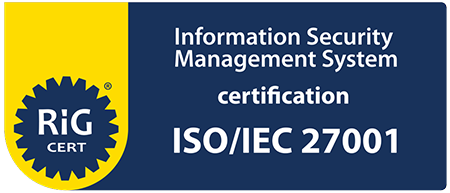The year of 2020 has brought great challenges for the business worldwide. They set an entirely new agenda with new ways of working, new financial priorities and budgets, a new more empathetic leadership, a renewed and deeper focus on trust, wellbeing, support, and a new role for HR. This new agenda has already impacted the strategic planning and goal setting of every institutional or business organization. That is why in the following lines we will present you 15 key priorities, defined by over 160 HR teams from around the world as crucial for the success of every business, which will go through different transformations due to pandemic. The study is held by Josh Bersin Academy.
1. Continuous and real time communication with employees
Focus on empathy, support and connectiveness. They are crucial to the success of your company. Create a new support structure for employees at all levels. This includes regular (daily or weekly) communications, all-hands meetings, etc. Listen to your employees, do more research and seek feedback.
2. Wellbeing in all forms
Pay attention to every aspect of your employee’s wellbeing. More than ever workers are under enormous stress. Addressing the problem, many Bulgarian and international companies not only conduct yoga and cooking classes and positive thinking programs but also deliver education and training for children and adopt many different types of coaching on physical, mental and financial stability.
3. Supporting and developing leaders
One of the main groups directly affected by the massive business change is management. It is essential for leaders to learn how to supervise and support people working at home. Make sure each manager is comfortable with offering help to employees and their families.
4. Multi-functional HR
The scope of responsibilities of HR specialists is growing! In some cases, they even have to take on entirely new roles. They need to broaden their areas of expertise and work directly with other functional areas such as safety, IT, legal, finance and more. Increasingly, HR experts will have to deal with issues like employee commutes, workplace safety, restroom and common spaces policies, and a myriad of other issues created by the pandemic.
5. Adapted talent practices
Throughout the pandemic most organizations continued to hire, onboard, train, manage and promote their people. However, every one of the talent practices has changed. Recruiting and onboarding is now being done digitally, often with great success.
6. Digital transformation at speed
The changes due to the COVID situation have given us a chance to look at technology with different eyes and take advantage of the opportunities it provides. The need to organize an efficient remote workflow has critically increased the need for high-speed digitalization in almost every industry. Executives have discussed how rapidly employees adopted digital tools for remote work, increasing their efficiency and productivity.
7. Direct focus on family
Most of us have been taught to leave behind our family problems at the start of each workday. Issues like sick children, aging parents or health problems were largely ignored by employers. That has all changed. Leaders and HR managers are developing many programs to directly support workers and their families in the best possible way.
8. Remote work goes mainstream
Prior to the pandemic most of the companies did not permit work from home. Now, however, the situation is different and remote work is common. Therefore, in order to be competitive in the market, you need to provide your business with digital tools, platforms and systems that provide such an opportunity.
9. Maintaining productivity
One of the main problems regarding the work from home is distractions. Family issues, concerns about health and financial stability and the digital always-on workplace have a negative impact on productivity. In order to face and solve that problem organize quality trainings and support programs to teach your people how to run meetings successfully, how to stay focused and productive in a world of never-ending interruptions.
10. Rise of trust
Managers at all levels find themselves in a situation where trust (defined as competence, ethics and the ability to listen) - is sacred. Right now, it is extremely important for business leaders to justify this sense of trust by taking care of their employees’ safety in the workplace.
11. Improved pay and benefits system
As odd, as it sounds many employers have managed to increase their employees’ pay, improve their social benefits system and adopt supporting policies to keep all or as many of their employees as possible.
12. Learning all the time
One of the most interesting findings, about the pandemic, is the massive consumption of learning. In addition to gaining knowledge about the virus and health, people are using spare time to learn about digital tools, professional topics, and new languages. Provide your employees with the opportunity to learn and you will have a competitive advantage.
13. New rules and policies
Communicate clearly the rules and policies regarding pandemic issues. Otherwise, you risk making your employees feel insecure and confused. They will be more comfortable knowing which measures are optional and which are mandatory.
14. Positive psychology and operating under uncertainty
People keep asking, "When will life go back to normal?" However, we are slowly realizing that it will not happen. So responsible leaders and their HR teams need to communicate their readiness to help, regardless of conditions. They must convey optimism and competence while presenting their realistic vision for the company's future.
15. Unity and purpose
In times of uncertainty, people are desperate for sense of unity and common purpose. They are inspired and energized by the feeling of togetherness, shared purpose and usefulness in this time of change. Leaders who succeed in motivating their employees in this way are on the way to find a competitive advantage.




